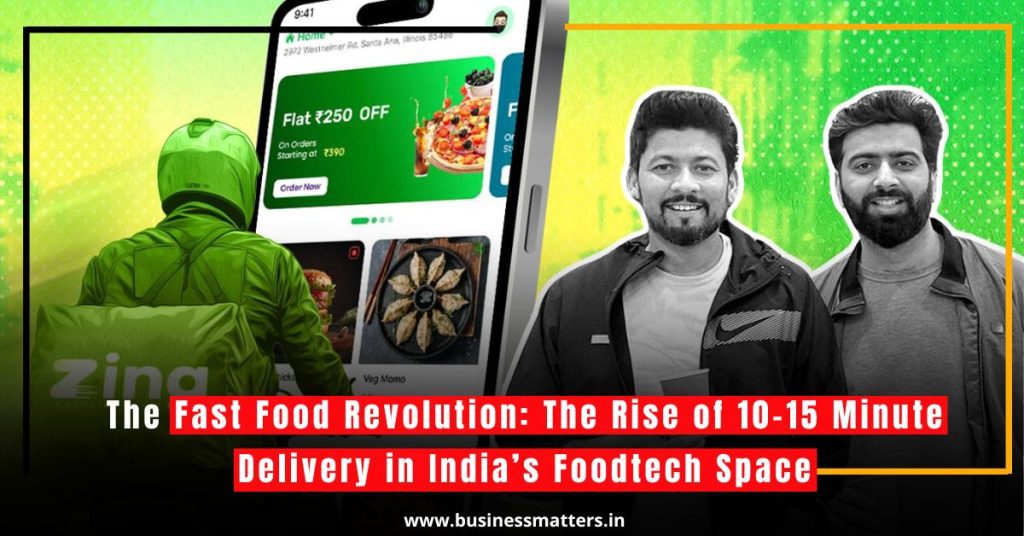1. The Evolution of Food Delivery: From Convenience to Speed
In 2008, Zomato revolutionized how people accessed restaurant menus, but it wasn’t until 2014 when Swiggy introduced door-to-door delivery, that the food delivery experience truly changed. What began as a way to easily browse food options quickly became an integral part of people’s lives. Over time, the focus on food delivery evolved, and the demand for instant gratification took center stage. Fast-forward to today and food delivery services are no longer just about convenience—they’re about speed. Companies are now racing to offer food within 10 to 15 minutes, a shift that marks the next big phase in India’s food-tech industry.
2. A Growing Market for Instant Food Delivery
The quick delivery sector is part of a broader trend of hyper-localized services, where companies cater directly to the fast-paced needs of consumers. By 2029, the market for 10 to 15-minute food delivery is expected to reach $9.9 billion, a massive increase from $3.3 billion in 2024. This rapid growth signals a shift in consumer expectations, with instant food delivery now becoming the norm. As the demand for faster services increases, the competition among food-tech startups heats up, with businesses vying for a slice of this highly lucrative market.
3. Swiggy, Zomato, and New Players in the 10-15 Minute Delivery Race
Traditional players like Swiggy and Zomato, who have long dominated the food delivery space, are now entering the 10 to 15-minute delivery race. Both companies are leveraging their extensive networks and customer base to offer quick meal deliveries, but their established infrastructure might not be enough to keep up with the growing competition from smaller, agile startups. These startups are using technology to streamline operations and improve delivery times, making them serious contenders in the high-speed delivery game.
4. The Rise of New Entrants: Swish and Zing’s Innovation in Fast Delivery
New startups like Swish and Zing are pushing the envelope in the quick delivery sector. Swish, based in Bengaluru, has embraced the 10 to 15-minute delivery model with a focus on fast food options and streamlined app-based services. Similarly, Zing, founded in 2024, is taking a hyper-localized approach with its Gurugram-based kitchen model. By combining technology with quick meal preparation, Zing is designed for efficiency, catering to customers who expect their food in record time. As these new players disrupt the market, speed and technology-driven solutions are set to define the future of food delivery.


